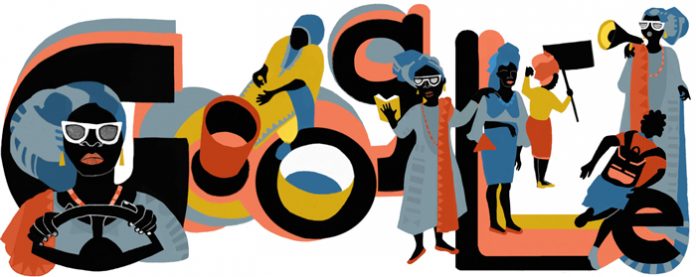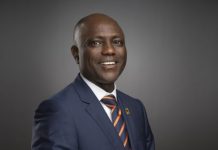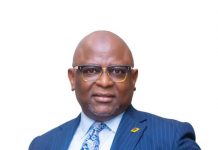Google is celebrating the 119th birthday of Funmilayo Ransome-Kuti. Today’s Doodle, illustrated by Diana Ejaita, Nigerian-Italian guest artist, celebrates a formidable leader who founded what many refer to as one of the most important social movements of the twentieth century. Diana Ejaita weaves together Ransome-Kuti’s likeness with women whose lives she changed. The Berlin-based artist’s style of combining dramatic blacks and soft colors to show “the strength of femininity” aligns well with Ransome-Kuti’s powerful story.
Born on this day in 1900 in Abeokuta, the current capital of Nigeria’s Ogun state, the former Frances Abigail Olufunmilayo Thomas grew up witnessing Great Britain consolidating control over Nigeria. As the grandchild of a slave, she became one of the first girls to enroll in Abeokuta Grammar School, before traveling to Cheshire in England to continue her education. By the time she returned home, she’d dropped her birth names and preferred to speak Yoruba.
In 1932, Ransome-Kuti established the Abeokuta Ladies Club (ALC), fostering unity between educated women and poor market workers and setting up the first adult education programs for Nigerian women. Renamed the Abeokuta Women’s Union in 1946, the organization boasted a membership of some 20,000 and pushed for healthcare, social services, and economic opportunity. Imprisoned in 1947 for protesting against unfair treatment towards women, Ransome-Kuti and her followers also led the charge to abdicate a corrupt local leader.
A trailblazer in many ways, Ransome-Kuti was also the first Nigerian woman to drive a car. She was also the only woman in Nigeria’s 1947 delegation to London, which lodged a protest and set the nation on the path toward self-government. As one of the few women elected to Nigeria’s house of chiefs, she was recognized for her advocacy work on behalf of women’s rights and education, and revered as the “Lioness of Lisabi” and the “Mother of Africa”.
“As for the charges against me, I am unconcerned,” said Funmilayo Ransome-Kuti, the Nigerian educator and activist who fearlessly campaigned for women’s rights and the liberation of Africa from colonial rule. Her daughter—Dolupo—and three sons—Beko, Olikoye, and Fela—likewise became leaders in education, healthcare, and music, continuing their mother’s legacy of activism and advocacy.















































